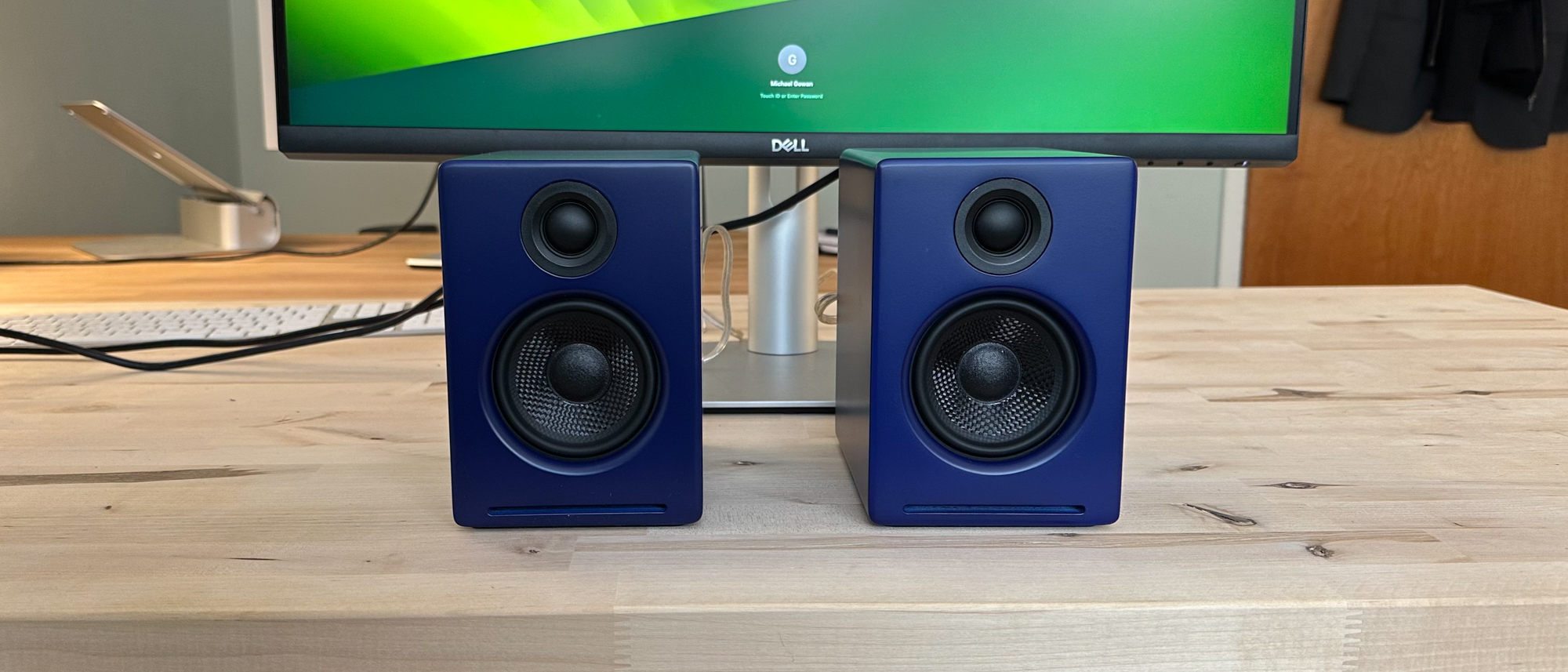Tom's Guide Verdict
Audioengine’s A2+ Home Music System speakers sound bigger than their compact footprint might suggest. They produce great audio that really impressed in my tests when listening to music, but some connectivity options are outdated.
Pros
- +
Balanced sound
- +
Excellent detail
- +
Small footprint
Cons
- -
Micro USB port feels outdated
- -
Sounds harsh at high volume
Why you can trust Tom's Guide
Price: $269 / £255 / AU$429
Colors: Blue, black, red, white
Drivers: 0.75-inch tweeters, 2.75-inch woofers
Wireless: Bluetooth 5.0
Inputs: Stereo RCAs, micro USB, 3.5mm jack
Output: Stereo RCAs
Power output: 2x 15W RMS
Size: 6 x 5.25 x 4 inches
Weight: Not specified
While the laws of physics dictate that you will get bigger sound with larger speakers, particularly at the lower end of the frequency spectrum, Audioengine's A2+ compact home music system speakers defy expectations when it comes to desktop audio.
A long-running model, the A2+ has been pleasing my ears without taking up much space on my desk for a while now. They look great and come in several attractive color options, and few desktop speaker systems this size can match their balanced sound when it comes to the best computer speakers.
Although as an older model not everything hits the modern day mark. For music fans wanting to enjoy great sound at their desktop, they give larger speaker designs a run for the money and with Bluetooth connectivity could rank among the best Bluetooth speakers contenders. Read on to find out if the Audioengine A2+ are a worthwhile desktop-friendly option for you in my full review.
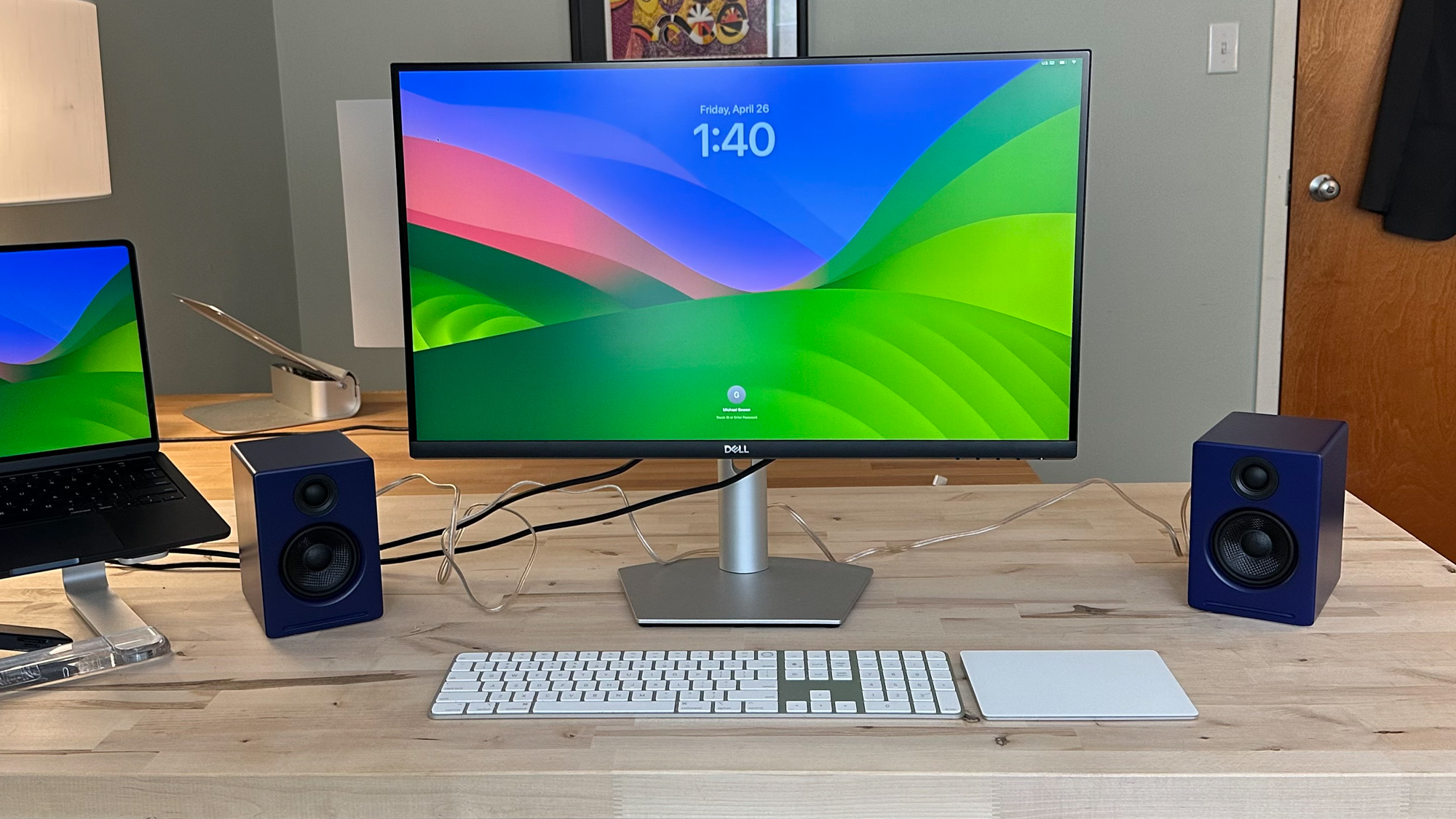
Audioengine A2+ review: Price & availability
- On sale now priced at $269 / £255 / AU$429
- Available in blue, black, red, and white (color options vary between territories)
The Audioengine A2+ speakers cost $269/ £255 / AU$429 and are available from Audioengine's website. They can also be found at Amazon, Walmart, B&H Photo, and other online retailers.
As a 2.0 system, the A2+ speaker system doesn’t come with a subwoofer, but you can add one. Audioengine’s S6 210W powered subwoofer ($299 at Amazon) is designed to match the A2+ system. Stands for the speakers are also available.
Audioengine A2+ review: Design
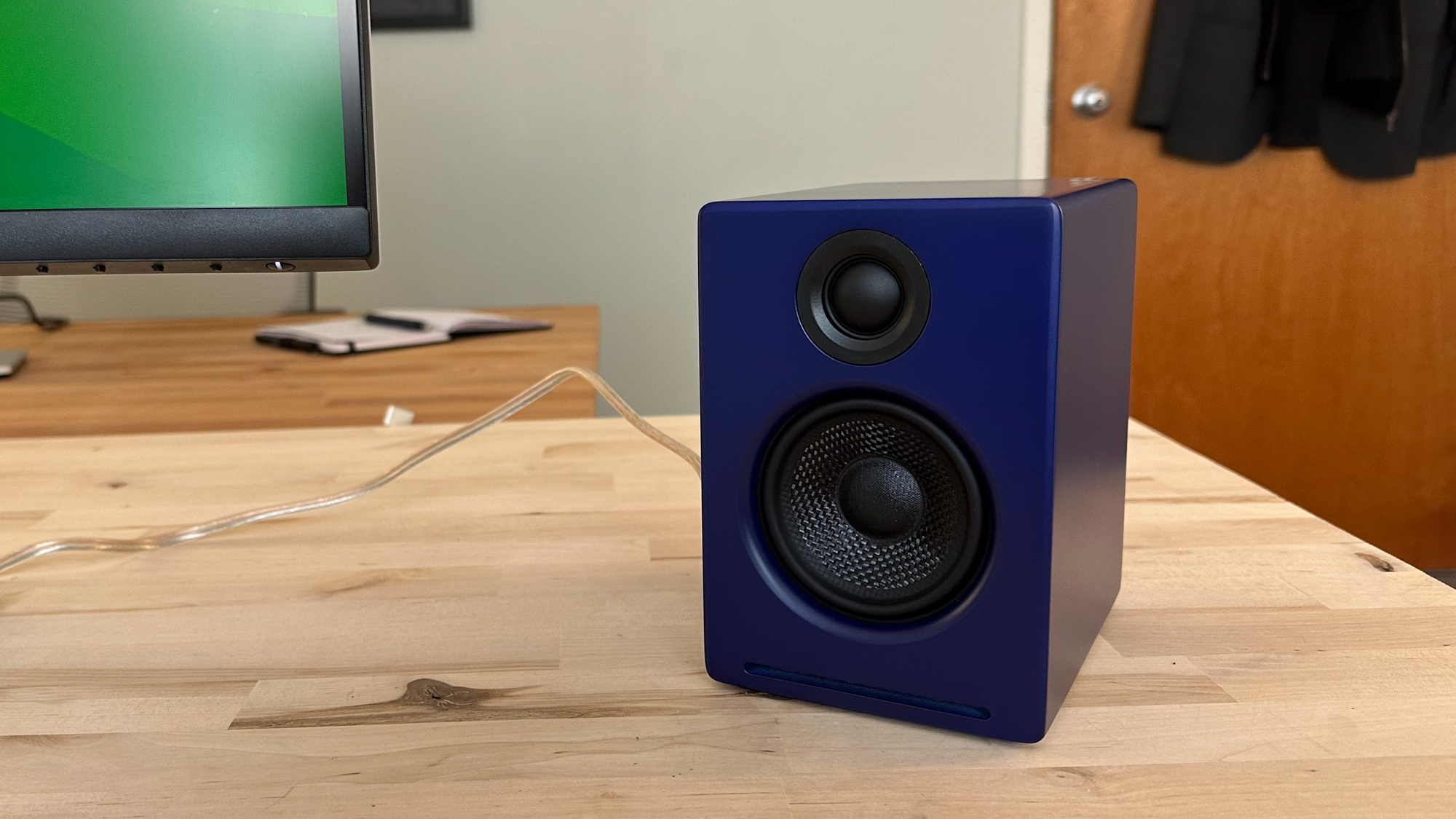
- Great build quality and compact size
- Slot port for increased bass output
At 6 x 5.25 x 4 inches (HxWxD), the A2+ speakers fit well on almost any desk. The speakers are made from quality materials and looked great next to my monitor. Available in blue, black, white, and red, you should be able to find a finish that matches your taste.
Each speaker has a 0.75-inch tweeter and 2.75-inch woofer; the drivers are exposed, not hidden behind a grille or cover. There’s a small bass port under the woofer. And that’s it — these speakers subscribe to simplicity of design.
Audioengine A2+ review: Controls & connectivity
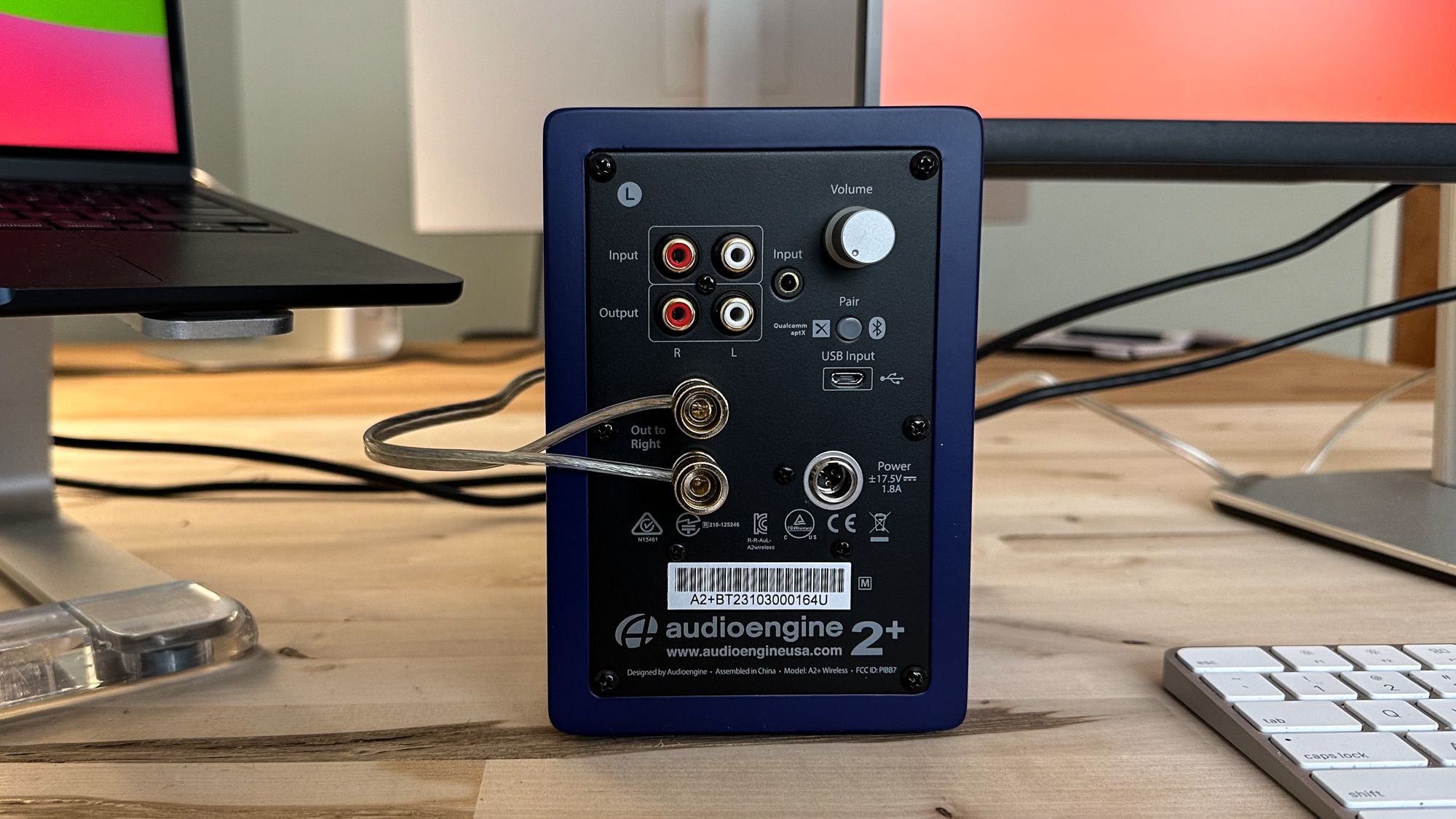
- 15W per channel power output Class AB
- Bluetooth 5.0 wireless plus micro-USB port and a 3.5mm aux input
Unlike many desktop speakers, the left speaker in the A2+ system houses the controls and connections, not the right. The amplifier in the left speaker claims 30W total power output (15W per channel RMS / 60W total peak power).
The A2+ is a bit old-school in its connections. You use speaker wire to connect the right speaker to the left (remember to match the polarity of the wires). It also has a micro USB port for connecting to your computer — luckily it comes with a micro USB to USB-A cable in case you’ve ditched your old cables — as well as RCA and a 3.5mm inputs. You can connect a wired subwoofer via the RCA inputs.
But don’t worry, you can use Bluetooth 5.0 for the modern convenience of playing music wirelessly (but not Wi-Fi).
There are no controls on the front of the speakers, and the only adjustment you can make to the sound is the volume level, found on the back of the left speaker.
Audioengine A2+ review: Sound quality
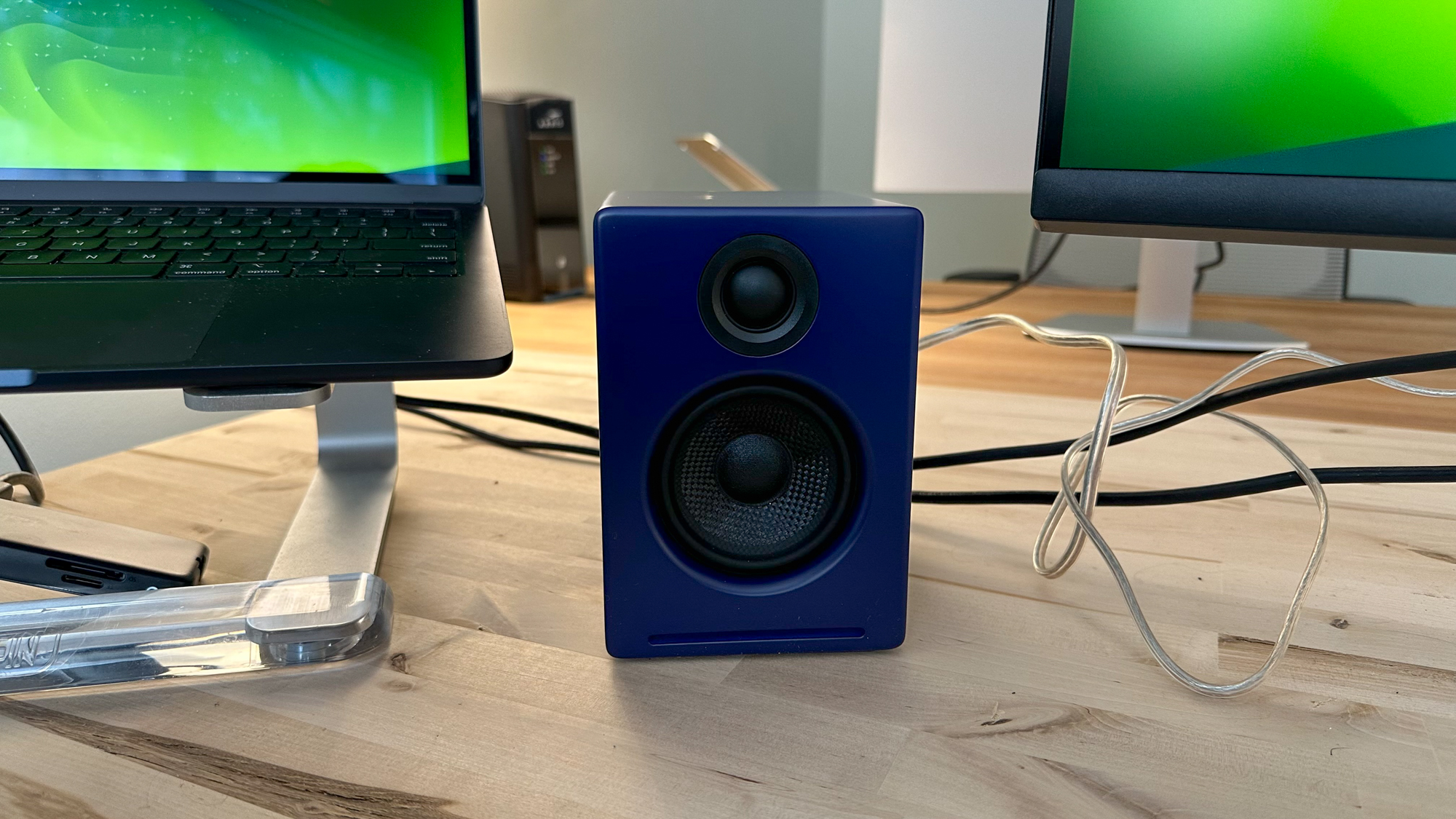
- Balanced and room-filling sound with music
- Dialog sound on movies lacks clarity
The A2+ delivers a pleasing mix of treble, midrange, and bass tones. None overwhelms the other; it’s a balanced sound.
The acoustic guitar on Beyonce’s “Jolene” sounded warm and her vocals were full. The snare drum on Brittany Howard’s “What Now” popped crisply while the guitars had good detail, as did the distorted sounds on St. Vincent’s “Broken Man.”
The system delivers some bass, but if you’re a lover of low end you’ll want to add Audioengine's matching S6 subwoofer at $299 for a deeper rumble. The thumping rhythm on Mumford & Sons and Pharrell Williams’ “Good People” had much more depth when I connected the S6 subwoofer.
I found that the A2+ worked best for listening to music. When watching a movie or show, the dialog sounds narrow and can get drowned out by background sounds.
Despite the small size of each speaker, the A2+ can fill an office space comfortably and get louder than you’ll probably need. But, if you go above about 85 decibels, the system loses its balance, sounding harsh and unpleasant.
Audioengine A2+ review: Verdict
If you love listening to music and have a desk where you can listen on speakers instead of headphones, the Audioengine A2+ is a great-sounding setup. The system nicely balances bass, treble, and the in-between tones to produce a neutral, pleasing sound. The sound is also bigger than you’d expect from the small speakers, and they look good, too.
At $269, the price feels pretty reasonable and performance-wise comes close to the Kanto Ora ($349) — one of the best computer speakers I've tried for music. Although you can get good sound for less, such as from the Bose Companion 2 Series III currently discounted to $79 at Walmart, Audioengine's A2+ speaker system rewards with stronger musicality and is the better investment.

Michael Gowan is a freelance technology journalist covering soundbars, TVs, and wireless speakers of all kinds of shapes and sizes for Tom’s Guide. He has written hundreds of product reviews, focusing on sound quality and value to help shoppers make informed buying decisions. Micheal has written about music and consumer technology for more than 25 years. His work has appeared in publications including CNN, Wired, Men’s Journal, PC World and Macworld. When Michael’s not reviewing speakers, he’s probably listening to one anyway.
